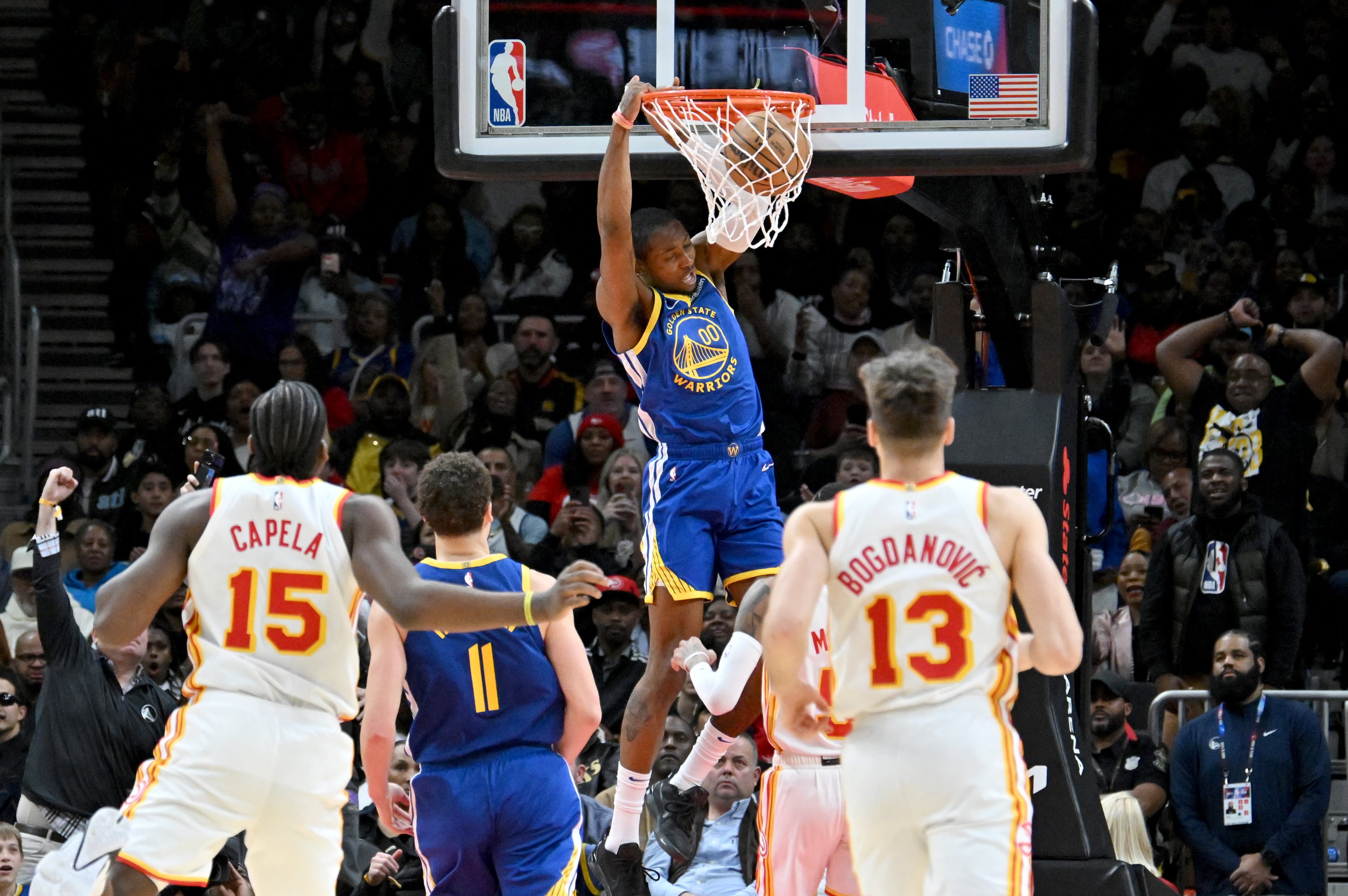Keflezighi runs down pack at AJC Peachtree
For more information on donating to the Kilometer Kids Charity Chase, visit charitychaseforkids.org.
On Independence Day, Meb Keflezighi took his part in the national “pass time.”
In a city renowned for its gridlock, the Boston Marathon champion did what perhaps all commuters dream about — he surrounded himself with a phalanx of traffic-splitting forerunners and floored it.
“It was an amazing experience,” Keflezighi said.
Keflezighi, who in April became the first American man to win Boston since 1983, was participating in an unusual fundraiser organized by the Atlanta Track Club. He was attempting to raise $75,000 for the track club’s youth running program by starting in the back of the 60,000-runner field at The Atlanta Journal-Constitution Peachtree Road Race and trying to pass as many as he could, with the goal of 22,500.
Keflezighi was increasingly nervous as race day approached.
“People are telling me, ‘Do you know what you’re putting yourself into?’” he said. “’It’s going to be so crowded.’”
But, at 9:15 a.m. Friday, before news cameras and smartphone-wielding volunteers, the 39-year-old Keflezighi took off with three members of the track club’s competitive team to help clear a path. He started his run 10 minutes after the last wave of runners in order to let the pack thin out.
Shouting “Meb’s coming through,” Keflezighi’s entourage tried to get runners out of the way down the left-hand side of Peachtree Road. As he passed the walkers and runners, some shouted “Go, Meb!” Others chanted “USA!” Others, as they heard the shouts from behind, tried to keep up with a man who won Boston by averaging a 4:53 mile over 26 miles. Not everyone was quite so aware, lost in the music coming through their earbuds.
On those occasions, Keflezighi himself sometimes had to give a gentle push as he swerved in order to keep from falling. In an interview, he offered an apology to those he pushed.
“Hopefully they won’t get mad at me,” he said.
Keflezighi said it was unlike anything he had ever done before, not surprising given that in most races, the competition is not desperately whipping out their phones to get selfies with him.
Keflezighi tried to keep his eyes down the course, looking for openings. He compared the challenge with a running back looking for holes as his linemen clear a path. On the course, they weaved when necessary.
“Imagine a bottle or stick thrown in the river,” he said. “It’s not going to go straight. It’s going to go wherever the wave is, and that’s what it was like.”
Keflezighi himself tried to enjoy the morning, telling runners “Good job” as he passed. He tapped a few of them on the shoulder and said, “Tag, you’re it.”
It was typical of Keflezighi, who has endeared himself to the U.S. running community with an inspiring story, staggering success and a charismatic personality. Keflezighi and his family came to the United States from Eritrea as refugees when he was 12. He began running as a seventh-grader, graduated from UCLA after an All-American career and became a U.S. citizen in 1998.
He is the first American man in history to win the New York and Boston marathons and an Olympic marathon medal. He won Boston earlier this year at the age of 38, the race’s oldest male winner since 1930, a poignant American victory after the bombings at the marathon in 2013.
Friday’s race was part fundraiser, part victory lap.
“It was loud, screaming, a lot of chanting, a lot of people cheering for me,” Keflezighi said.
He gave them what they wanted.
“He blew right past me,” Mark Reynolds said. “They were yelling, ‘Here he comes!’”
Another glad to taste Keflezighi’s vapor trail was Christopher Chambers of Ball Ground.
“It was like you’re on (Ga.) 400 going 55 and he’s doing 95,” said Chambers, who, in fairness, did his wind resistance no favors by running with an American flag as a cape.
Keflezighi dropped Sona Patel and Lanice Gipson around mile 5, or so Patel thought.
“I was a little light-headed, so I wasn’t sure,” she said.
Patel compared Keflezighi and his entourage to gazelles, albeit gazelles shouting to alert runners to their presence and holding signs that read “#MEBPASSEDME.”
At the finish line, race announcer Creigh Kelley gave updates on Keflezighi’s whereabouts. Soon enough, Keflezighi came hurtling down 10th Street, surrounded by his bodyguards. Nearing the finish line, they clasped their hands together, raising them in triumph and also to avoid clotheslining another runner. He finished in 38 minutes, 58 seconds, a 6:17-mile pace in heavy traffic.
Then came the wait to tabulate his total.
“People asked me how many people did I pass,” Keflezighi said. He stood on Charles Allen Drive, just off 10th, as runners continued to flood in more than an hour after he had finished. He motioned to them for his answer. “All these people.”
At about 12:40 p.m., word came that he had met his goal, passing 22,780 runners. That’s the equivalent of passing all of the passengers in a full-capacity Boeing 747-400 (524 people) every 54 seconds.
After the race, he said he would be interested in coming back, offering a couple of tweaks. One, he could run with the elites, finish, get taken back to the start and then run from the back. Two, to ease his passage, the track club could designate a lane for him on the left-hand side of the course.
“Like an HOV lane,” he said. “Or a Meb lane.”
It would most definitely be a passing zone.



